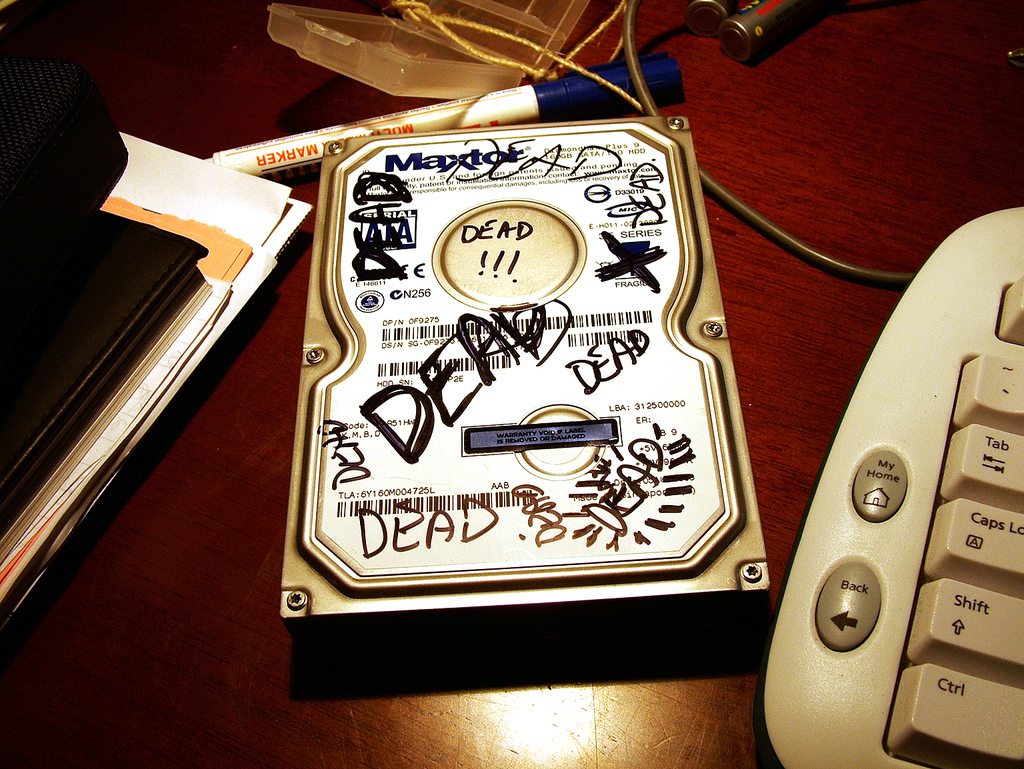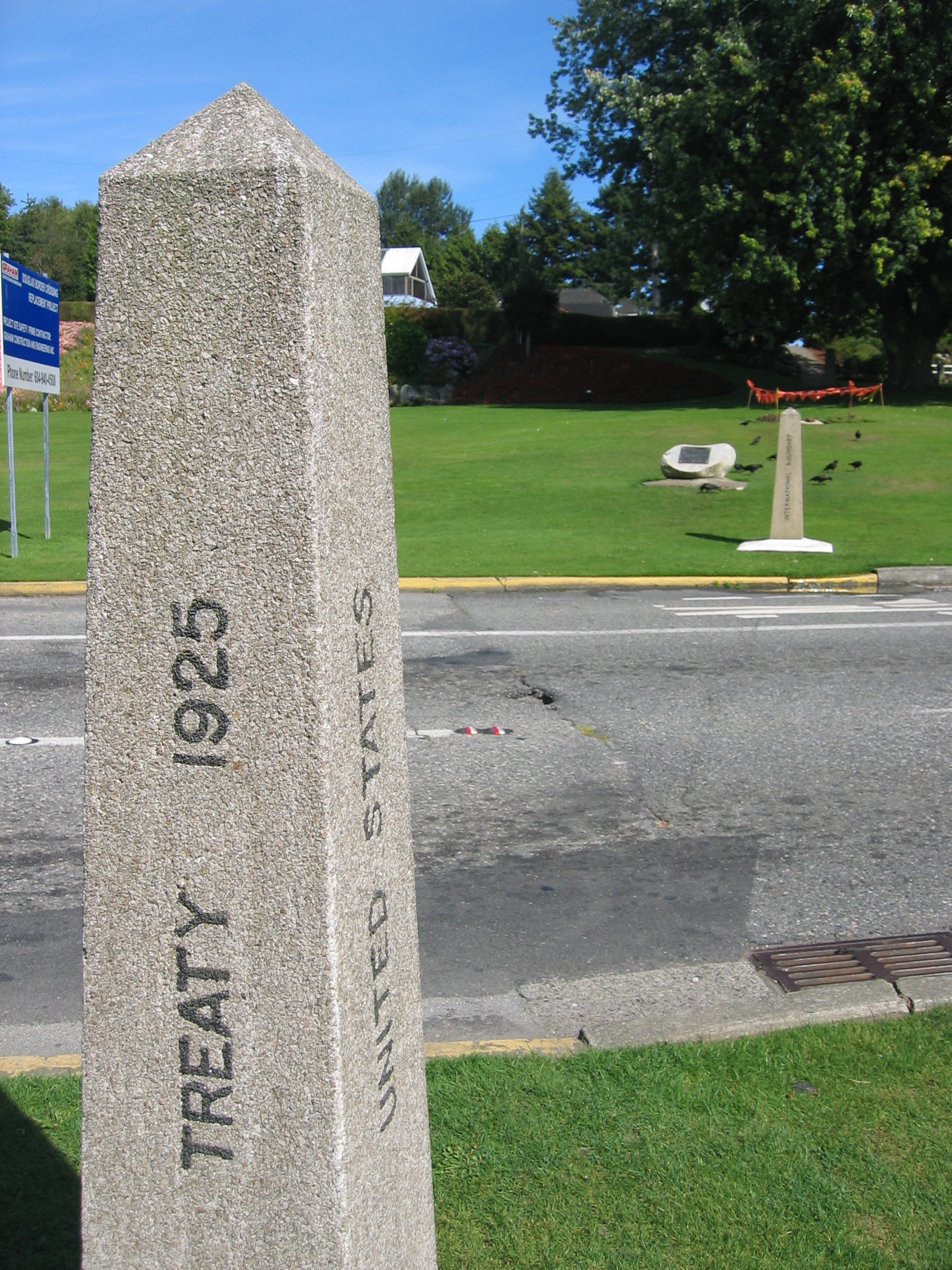That sick feeling you get in the pit of your stomach when you realize something very bad has happened began to creep up on me. I reboot the computer. It starts up, and I try to allay my fears. Everything is okay, I tell myself. Suddenly the Windows splash screen is replaced by a bright blue screen with white letters. “OS not found". (clack-clack, clack-clack, clack-clack).
I'm disgusted and frustrated and livid and about a dozen other emotions all at the same time. It can’t remember what it was looking for, and now I'm the only one that remembers any of that stuff on the computer, and I only recal l fragmented bits and little pieces. What was that file named? Do I have the original at work or here at home? All those genealogy files…will I ever be able to prove I’d related to the deposed King of Italy again? All those e-mails, and now I don't know how to reach any of those people; addresses for everyone I know (in the electronic Biblical sense, anyway), missing in action. Bright blue screen, white letters…"OS not found". (clack-clack, clack-clack, clack-clack).
l fragmented bits and little pieces. What was that file named? Do I have the original at work or here at home? All those genealogy files…will I ever be able to prove I’d related to the deposed King of Italy again? All those e-mails, and now I don't know how to reach any of those people; addresses for everyone I know (in the electronic Biblical sense, anyway), missing in action. Bright blue screen, white letters…"OS not found". (clack-clack, clack-clack, clack-clack).
I intended to back-up the drive lots of times…but you know how that goes. This can’t happen to me, I tell myself. I’m good to the computer, I remind myself. I run the disk utilities on a regular basis. I treat it gently and kindly. Bright blue screen, white letters…"OS not found". (clack-clack, clack-clack, clack-clack).
I drag myself out of my fits of depression. I am determined not to go down without a fight. I find some kid that knows how to program a VCR and fixes computers just for fun. The Kid is a master at diagnosing and treating the dysfunctional PC. "Did you back up recently?" he asks. Right. If I had, I'd be sitting at home with the new drive I installed, laughing at the old one and saving it for the shooting range. The Kid knows it, I know it. "You'll be better about backing up now, huh?" says The Kid. I consider telling him not to become a doctor because he lacks a good bedside manner, but I remember he holds all my files in the palms of his hands. I remind myself that a still mouth makes a wise head and remain quiet. I am humbled and powerless in front of this 19 year old.
He works with speed and precision. The Kid slaves my hard drive onto another computer. The hard drive works perfectly fine for him. I look on in shock. The Kid moves his nimble fingers, finds the files I can’t live without, and begins to copy them onto a CD. Then it happens…(clack-clack, clack-clack, clack-clack). Undaunted, he reboots and tries again…(clack-clack, clack-clack, clack-clack).
The Kid waits a few minutes and tries again…this time it responds. He quickly selects a few files and rapidly drags them on to his hard drive to save them for the nether-reaches of this magnetic albatross that hangs about my neck. One, two, three files…(clack-clack, clack-clack, clack-clack). The sound sickens me.
The Kid fiddles more and more with the drive…another few files are saved before the nauseating sound comes once again to haunt me, like the Ghost of Backups Past…(clack-clack, clack-clack, clack-clack).
He thinks for a while, and then he describes a potential remedy…a sharp blow may fix the problem. He tells me how he would take my hard drive out to the sidewalk where he would drop it from a height of precisely 7/8 of an inch. Why 7/8 of an inch, I ask. He tells me that he has determined that this is the optimal height for this type of treatment. I wonder how many years and hard drives he has spent proving his theory.
“The downside is that this either works or it doesn’t,” says The Kid. And if it doesn’t? The Kid shakes his head. We have an understanding; this may clear up the problem…or render the drive silent forever. I choose to pass on this technique, hoping for some modern miracle instead of leaving the fate of my files up to a concrete sidewalk. I can’t take the pressure anymore and leave the Kid to engage whatever other desperate measures he sees fit.
That night passed slowly. I tried to lose myself in a novel, but to no avail. I finally drift off into a fitful sleep, night-sweats quickening my heart. I dream about giant bookworms, consuming every piece of paper I have ever owned. I try to stop their advance but it is useless. One of them picks me up and drops me to the sidewalk. I awaken with a start. Dawn breaks through the window shades. I wonder if it’s too early to call The Kid to check his progress.
I stop by The Kid’s house later that day. He is gone, but his mother is there. The Kid has left the hard drive and a CD-ROM for me, with a note that says he got some of the files, but not all of them. The click and drag process was taking too long, and he needed to pack to get back to college. I tried telling his mother that college was a waste of time and money, and that look at me, I didn’t use anything I learned in college on a regular basis and I was just…a loser with a broken hard drive. She smiled the smile that tells me others have traveled this way before, expounding on the marvels of non-traditional education in an attempt to gain a few more hours work out of The Kid on their dying computers. I picked up my things and left quietly, wondering if she backs up her files.
I’m down, but not out. I search the Internet and find numerous companies that specialize in data retrieval from crapped out hard drives. They paint pleasant enough pictures on their websites. Yes, this is hard work, they explain, but it is possible to retrieve your lost data. I have been given hope…there is light at the end of the tunnel. Just fill out these simple forms and they’ll get right back to me. They ask straight forward questions…size of the drive, what happened when it failed, how much money I have in mutual funds, stuff like that. I fill out the forms and wait, hopeful that there is life after hard drive failure.
And then they respond. “This is a tedious, time consuming job,” they state. “You may only get 30% of what you want back,” they explain. “Send us the hard drive and we can provide a better estimate,” they claim. The estimates start at $500 and head towards something just shy of the current national debt. One company wants $100 just to evaluate it; no guarantees or work done at all besides to open it and look under the hood. If they could recover data the cost would be $800 for the first 10 files and $10 per file thereafter up to a maximum of $2500.
I decide that living without the past will be painful but not worth selling internal organs for. I wondered if Elizabeth Kübler-Ross has written an updated version of her pioneering book "On Death and Dying" to include loosing one’s hard drive and that portion of the memories they so trustingly gave to their computer. I’m still in the denial stage at this point, but I’m trying to work through it as best as I can.
My financial spreadsheets, stories I’ve written, ideas I never acted on, song lyrics I liked, photos from last year's vacation, and the only copy of Betty’s Grandma's secret cookie recipe. Priceless and irreplaceable things of beauty in digital form, lost forever. My Internet bookmarks…all of them, even the ones that have been long dead and led me to 404 file Not Found. I’ll never get to go there again.
The irony of it all hits me. I will never really know what my computer's senility cost me – because, much like walking into the kitchen and wondering why I went in there, I can't remember all the things that are on my hard drive.
Save yourselves. Don’t wait until it’s too late. Hug your children. Hold your loved ones close to your heart. Keep your friends close but keep your enemies closer. And spend some time backing up your hard drive.








